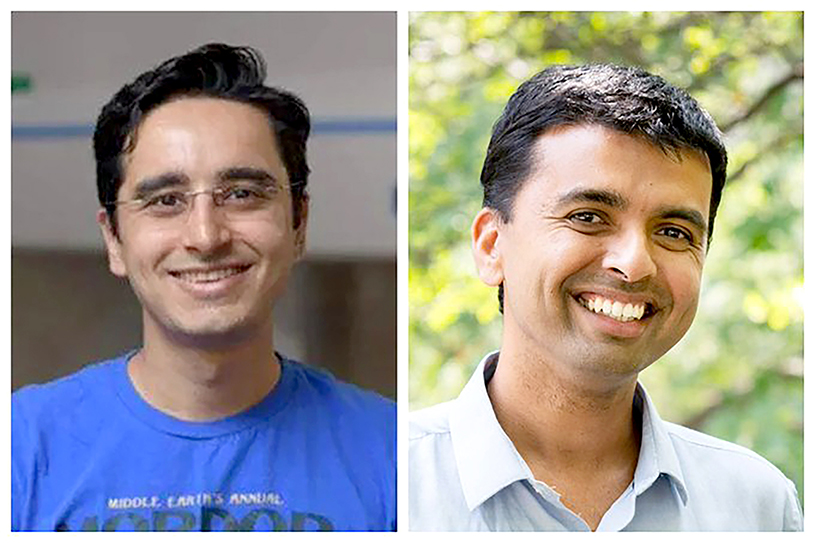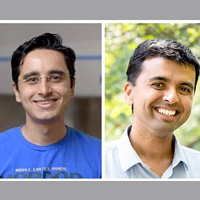Indian American Scientists Named 2025 Schmidt Polymaths

Two Indian American researchers, Arvind Murugan and Saad Bhamla, have been named among eight global scientists recognized as 2025 Schmidt Polymaths, an elite program that supports bold interdisciplinary research. Each honoree will receive funding of up to $2.5 million spread over five years, giving them the freedom to pursue early-stage, high-risk projects that could shape the future of science and technology.
The announcement was made by Schmidt Sciences, a nonprofit founded in 2024 by Eric and Wendy Schmidt. The initiative seeks to accelerate scientific progress by backing groundbreaking ideas that often fall outside traditional funding avenues. According to Wendy Schmidt, the goal is to support researchers who “see the bigger picture” and expand the boundaries of knowledge to build a healthier future for humanity and the planet.
This year’s cohort marks the fifth class of Schmidt Polymaths, chosen through a rigorous global selection process. Eligible candidates must have achieved tenure or an equivalent status within the last three years, and demonstrate both proven ability and future potential in trailblazing research. The awardees come from universities worldwide and cover diverse fields ranging from climate modeling and healthcare access to advanced computing and biophysics.
Arvind Murugan, Associate Professor of Physics at the University of Chicago, will use his grant to study how molecules can naturally learn and compute, without direct human control. His research explores the connections between evolution, synthetic biology, and physics—revealing how matter itself can process information in ways similar to neural networks. Murugan’s academic path includes a BS in mathematics from Caltech, a PhD in high-energy physics from Princeton, and postdoctoral research at Harvard University. Over the years, he has received honors such as the NSF CAREER Award, the Simons Investigator recognition, and the International Prize in Biophysics from Tel Aviv University.
Saad Bhamla, Associate Professor at Georgia Tech’s School of Chemical and Biomolecular Engineering, will focus on creating low-cost, scalable technologies to address global health and environmental challenges. His team will develop AI-powered diagnostic tools for underserved regions and engineer adaptive machines capable of learning and evolving like living systems. Bhamla’s research lab combines soft matter physics, bioengineering, and global health innovation. He earned his BS in Chemical Engineering from IIT Madras and completed his PhD in Chemical Engineering at Stanford University.
Schmidt Sciences continues to prioritize transformative areas such as AI, astrophysics, climate, biosciences, and space, while also investing in innovative methods and scientific infrastructure. By empowering scientists like Murugan and Bhamla, the program aims to unlock pioneering discoveries that bridge disciplines and inspire global impact.


















